There is a long history of religious instruction in New South Wales (NSW) Government schools.
This history includes debate about Special Religious Education (SRE), General Religious Education (GRE), Special Education in Ethics (SEE) and the role of parents and what choice they have in the education of their children with regards to their relationship with God (religion), and/or ideas about what is good (ethics), that informs their identity and motivates them to live in service of the common good for all.
Since 1880, provision for religious education has been included in education policy in NSW.
1820
In a struggling convict settlement voluntary resources were inadequate for such a task, and from early in the colony’s history the governors granted State assistance, especially to the Church of England, to establish and maintain schools. Other Christian denominations in the colony fiercely challenged the notion of an Anglican religious and educational monopoly.
Their hostility, together with political changes in the mother country which allowed greater freedom for Catholics, and growing objections to the alienation of large tracts of colonial land with no possibility of their development led to changes in education policy.
1830
Governor Bourke was faced with the problem of promoting education in a way which did not favour any particular Christian denomination. He introduced a “common school” system along the lines of the system he had seen at work in Ireland, where Catholic and Protestant children attended the same schools. The problem of different religious backgrounds was overcome by the use of a book of scripture readings; in addition, local clergy had access to their flock during school hours to give instruction in specific doctrinal matters.
1848
Governor Fitzroy appointed the Board of National Education to undertake the task of creating government schools and establishing a public education system; simultaneously, he appointed the Denominational School Board to handle government subsidies to church schools.
1866
Public Schools Act.
- It was an attempt to rationalise government spending on education (and in the process government schools received priority over denominational schools)
- and to provide educational facilities to the seemingly endless number of communities which were springing up all over the colony following the Land Acts of the early 1860s.
1872
All states in the colony decided to abolish state aid to church schools.
1880
The Public Instruction Act of 1880 had three sections relating to religious education.
- Section 7 required government schools to include General Religious Teaching as part of the curriculum. This is now referred to as General Religious Education (GRE).
- Section 17 permitted Special Religious Instruction to be provided by visiting clergymen or other accredited religious teachers of their persuasion.
- Section 18 made provision for parents to object to their children attending GRE or SRE lessons.
1980
The Rawlinson Report (1980) had a broad scope that included:
- the place of religion in education in Government schools in NSW
- the Public Instruction Act: Its background and consequences with particular reference to General Religious Education and Special Religious Instruction in schools
- present position of religion in education in Government schools
- recommendations for future action
The committee came to the view that:
- General Religious Education (GRE), “that is learning about religions” should form an integral part of the educational opportunities for children in N.S.W. government schools
- Special Religious Education (SRE), that is , the teaching of a particular religious faith, should be available for the children of parents requesting such teaching, depending upon the availability of suitably qualified personnel at the local level
- Parents should retain the right, without having to state their reasons, to determine whether or not their children participate in General Religious Education and/or Special Religious Education, at any stage of schooling.
2010
Amendments to the 1990 Education Act
In 2010, amendments to the 1990 Education Act enabled secular ethics classes to be taught during SRE time.
In its formal enquiry into the Education Amendment (Ethics Class Repeal) Bill 2011, the New South Wales Parliament Legislative Council General Purpose Standing Committee No. 2 reported on:
- the stated objectives, curriculum, implementation, effectiveness and other related matters pertaining to the current operation of ‘special education in ethics’ being conducted in State schools, and
- whether the Education Amendment (Ethics) Act 2010 should be repealed (p. iv)
The Legislative Council Standing Committee went on to recommend:
That the Department of Education and Communities (DEC) commission an independent review of both Special Religious Education (SRE) and Special Education in Ethics (SEE) in NSW Government schools to be conducted by appropriately qualified early childhood educational reviewers in 2014-2015.
2015
The NSW Government 2015 independent review of SRE and SEE was conducted to improve implementation and delivery.
The Department of Education (DoE) released the report on the review on 11 April 2017.
The full report makes 56 recommendations: 22 of the recommendations were considered in consultation with the NSW Consultative Committee for SRE and NSW Consultative Committee for SEE, which responded; the DoE responded to the remaining 34 recommendations.
• Full report (PDF 2.96MB)
• NSW Department of Education’s response to recommendations (PDF 79.4KB)
• NSW Consultative Committee for SRE and SEE’s response to recommendations (PDF 115KB)
2019
The 2015 NSW Government independent SRE-SEE review led to the 2019 updates of both the 2013 Religious Education Policy and Religious Education Implementation Procedures:
• 2019 Religious Education Policy
• 2019 Special Religious Education Procedures
In brief, the above two documents uphold the 1990 Education Act, which states:
“In every government school, time is to be allowed for the religious education of children of any religious persuasion, but the total number of hours so allowed in a year is not to exceed, for each child, the number of school weeks for the year.” (Par. 32)
In accordance with the Act and Departmental practice, the times for such education “are to be fixed by agreement between the principal of the school and the local member of the clergy or other religious teacher of that persuasion” (Par. 32, Section 4).
In providing for the above legislation and in accordance with Departmental policy, schools are to provide SRE where authorised representatives of approved providers are available.



